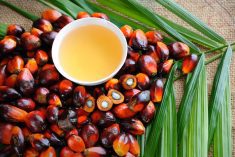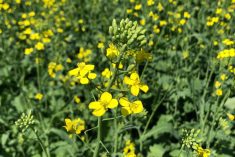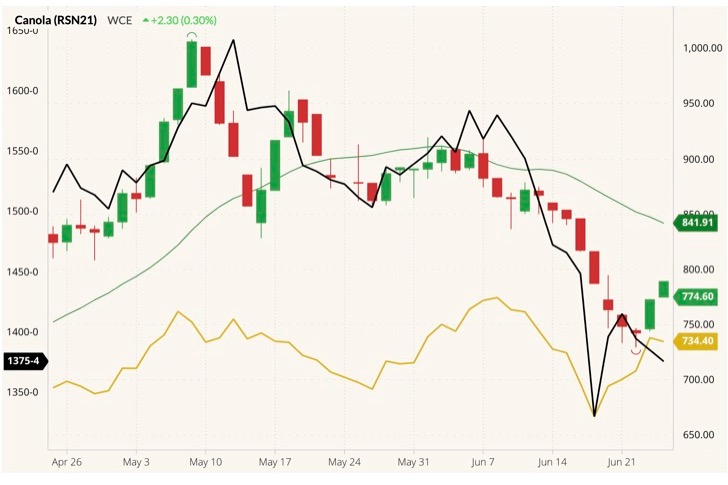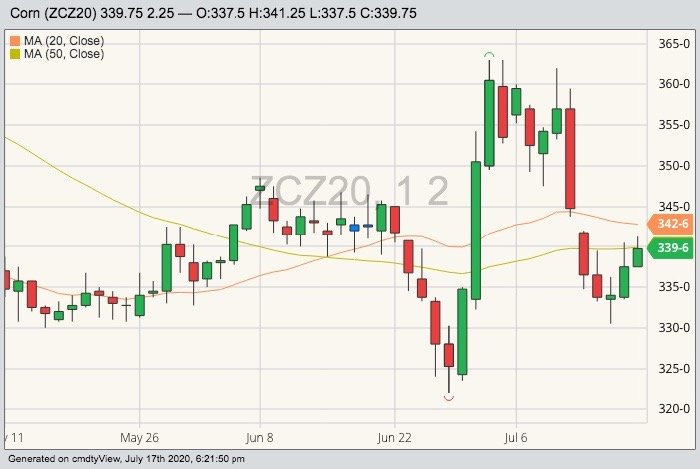Quebec has lost its last path of appeal against an interprovincial trade panel’s decision on restrictions for sales of vegetable oil-based dairy products in the province.
An appellate panel, convened under the Agreement on Internal Trade (AIT), on Wednesday released a Jan. 26 report which upholds an AIT panel’s ruling last spring, favouring Saskatchewan’s challenge against Quebec’s former Food Products Act.
Saying it’s now “won all aspects” of its case, the Saskatchewan government on Wednesday hailed the appellate panel’s decision on Quebec’s rules over dairy blends, dairy analogues and dairy alternatives.
Read Also

U.S. grains: Soybean futures rise as dollar hits four-year low
Chicago | Reuters – U.S. soybean futures crept higher on Tuesday and wheat finished nearly unchanged as a sliding dollar…
Saskatchewan said the ruling reiterates that barriers against production and sale of vegetable oil-based products in Quebec are to be removed, thus allowing producers and processors to “freely sell their products in Quebec.”
The appellate panel’s ruling, Saskatchewan said, “not only confirms that those changes by Quebec were necessary, but also upholds Saskatchewan’s challenge of Quebec labelling laws that prohibit the use of terms like ‘milk,’ ‘butter’ and ‘cheese’ for dairy substitute products.”
The Food Products Act — which Quebec amended late last year to comply with the March 2014 panel ruling — previously allowed the province to designate dairy product substitutes that may be prepared, offered for sale, sold, delivered, processed, held, displayed or transported for sale.
The earlier version of the Act had also allowed the Quebec government to determine when milk or any derivative of milk “ceases to be a dairy product” and when milk is to be considered the main ingredient in the making of a dairy product.
Despite having amended the law in question, Quebec in April filed to appeal the AIT panel ruling. The three-member appellate panel heard Quebec’s case in October in Regina.
In its report, the appellate panel upheld the AIT panel’s finding that while Quebec’s law could be justified as a consumer protection measure, Quebec had failed to show its law was “not more trade-restrictive than necessary to achieve a legitimate objective.”
The appellate panel shot down Quebec’s challenge of the AIT panel ruling, finding the earlier panel’s conclusions “reasonable and within the range of acceptable outcomes.”
The appellate panel also shot down Quebec’s claim that the earlier panel had overstepped its jurisdiction by recommending Quebec stop enforcing its restrictions on oilseed-based products. The appellate panel noted that AIT panels are not only authorized to make recommendations but in some cases are “required to do so.”
The appellate panel’s decision also puts Quebec on the hook for the operational costs of its appeal.
“Nationwide market”
Sean McPhee, president of the processor group Vegetable Oil Industry of Canada, said in Saskatchewan’s release Wednesday the appellate panel’s decision “creates a nationwide market for a wide range of innovative canola and soybean oil-based alternatives to traditional dairy products.”
“This is a victory for the internal trade process in Canada, and with this latest ruling, we’re confident Quebec will do the right thing and bring its labelling and marketing rules for dairy substitutes in line with the rest of Canada,” Jeremy Harrison, Saskatchewan’s minister responsible for trade, said in the same release.
A diehard defender of its dairy sector, Quebec has previously placed substantial limits on the marketing of non-dairy products such as margarine.
An AIT panel in 2005 shot down Quebec’s decades-old ban on the sales of margarine sporting the same “pale yellow hue” as butter. Until 2008, margarine could only be sold in Quebec with a lard-like whitish appearance. — AGCanada.com Network















